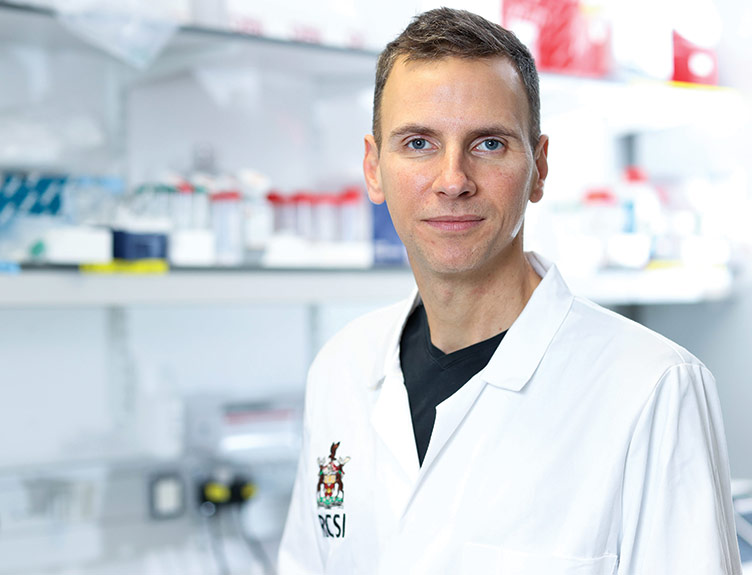RCSI to train new generation of researchers as part of study to tackle brain disease
RCSI is leading an international team of scientists on a major research study that aims to train the next generation of specialists in purinergic signalling during brain diseases. The project (PurinesDX) aims to establish the potential of newly developed devices to better diagnose and treat patients.
Brain disorders affect 180 million people and their families in Europe alone. PurinesDX has received funding of over €3.5 million from the European Commission's Horizon 2020 Research and Innovation Framework Programme.
The research project brings together global leaders in translational research in purinergic signalling, Europe’s leading clinical specialists in a broad range of brain diseases, and industrial partners specialising in drug and biomarker development from six different European countries. The main aim of PurinesDX is to train an urgently needed new generation of highly skilled, innovative, creative and entrepreneurial early stage researchers and to tackle brain disorders.
The project is led by Dr Tobias Engel, RCSI Department of Physiology and Medical Physics. "Despite diversity in symptomatology and etiology of brain diseases, it is becoming increasingly clear that neuroinflammation-induced hyperexcitability plays a key role in common mechanisms underlying both primary disorders of the brain and their shared co-morbidities. PurinesDX has identified the ATP-gated purinergic P2X7 receptor as the ideal target. By sharing unique genetic tools, newly developed diagnostic devices and novel, selective and brain-stable P2X7 antagonists, the synergism facilitated within PurinesDX will determine the therapeutic potential of targeting P2X7 in a wide array of the most common brain diseases and provide, at the same time, a high level training in state-of-the-art neuroscience for early stage researchers," Dr Engel said.
PurinesDX includes major academic and industry researchers from across Europe, including collaborators in Ireland (Longboat Clinical); Germany (University Ludwig Maximilans; Max Planck Institute of Psychiatry; Dr Seibt Genomics; Epilepsy Centre Frankfurt Rhein-Main; Affectis Pharmaceuticals AG); Hungary (Institute of Experimental Medicine, Hungarian Academy of Sciences; Bio Talentum; Semmelweis University); Belgium (Janssen Pharmaceutica NV); Spain (University Complutense Madrid; CIBERNED, CIEN, Foundation Teofilo Hernando; Ramon y Cajal Hospital); and the UK (Sarissa Biomedical).
The four-year project has received funding from the European Union’s Horizon 2020 research and innovation programme under the Marie Sklodowska-Curie grant agreement No 766124.



